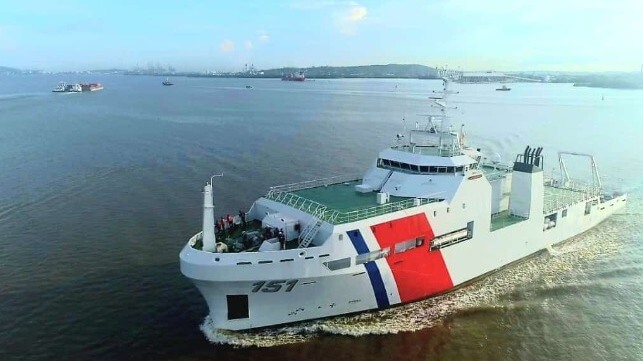Colombia Launches Antarctic Expedition

As countries step up exploration of the Earth’s polar regions, Colombia has embarked on its 10th expedition of the Antarctic. In the following three months, Colombian researchers aboard the country’s scientific ship ARC Simon Bolivar will carry out 11 research projects, mainly to explore and analyze ocean currents and the effects of climate change on the continent. The vessel is also hosting international researchers drawn from four other countries in support of international cooperation and scientific exchange.
The Colombia expedition was officially flagged off last month at a ceremony in the Port of Buenaventura attended by the country’s President Gustavo Petro.
“If Antarctica ice melts, the sea will rise affecting many coastal cities, including here in Colombia. This means we will have to retreat if we are not able to stop this climate crisis,” said President Gustavo at the ceremony, emphasizing the importance of updating scientific knowledge on the polar regions.
Some of the notable projects to be carried out during the expedition include one by an Ecuadoran researcher, which involves modeling of the Antarctic ecosystems using machine learning techniques.
“Antarctica is the world’s refrigerator. What we want to see is how climate change is affecting the world’s refrigerator and how that affects the whole quantity of nutrients in the sea,” the Ecuadoran researcher Pablo Araujo, from the Central University of Ecuador, told AFP news.
Ecuador’s Antarctic Institute has a research station in the Greenwich Island, which has been monitoring atmospheric pressure variations in the region.

that matters most
Get the latest maritime news delivered to your inbox daily.
Meanwhile, a Turkish mission onboard ARC Bolivar will study the presence of persistent organic pollutants, which result from burning fossil fuels and plastics. This will help measure the impact of human activities in the Antarctic environment.
In the last decade, there has been an uptick in polar expeditions, with countries jostling for influence in the region. These global political challenges could signal an end to Antarctic exceptionalism, defined as the relative immunization of the continent over the past seven decades from external geopolitical issues, according to an analysis from the Australian Institute of International Affairs.
